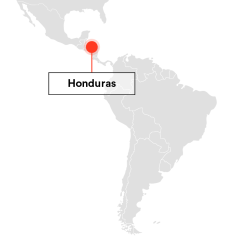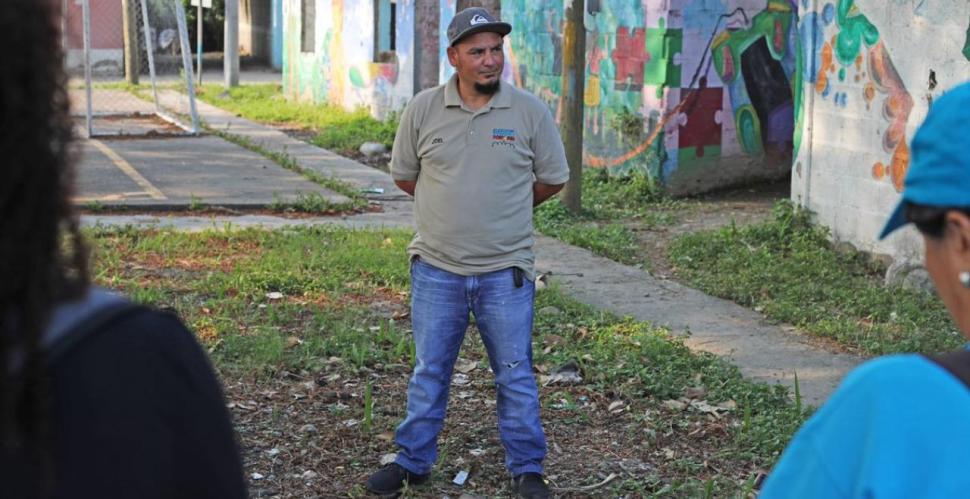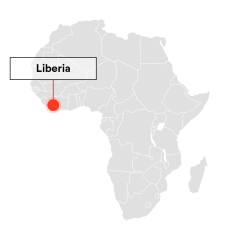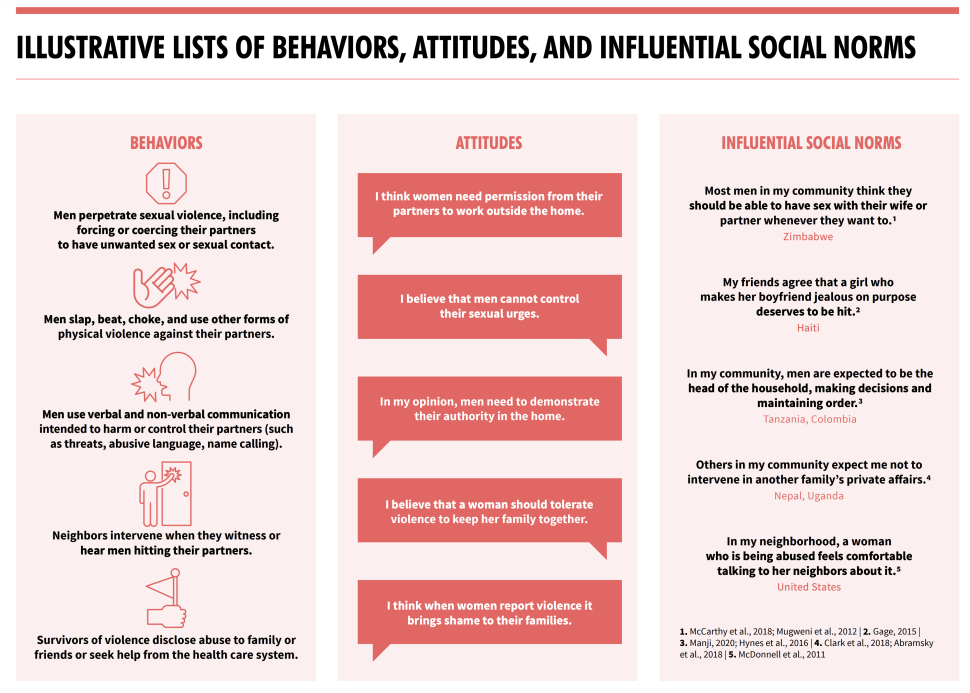Understand and transform social norms

Understand and transform social norms
Case Studies

Spotlight Initiative in Honduras has supported the ‘Cure Violence’ model – a transformative approach aimed at reshaping social norms to address the alarming rates of femicide and violence against women and girls. Honduras has the highest femicide rate in Latin America at 6 cases per 100,000 women in 2022, with a culture of impunity where 96% of such crimes go unpunished. This UNICEF-supported initiative involves mobilising communities to change social norms in areas affected by gang violence and trafficking. It uses ‘violence interrupters’ to lead community dialogues and efforts to identify and prevent instances of violence. Their mission is not only to intervene in violent situations but also to strengthen the capacities of diverse communities to identify risk factors and use a collective approach towards preventing violence and saving lives.
Results: In the first six months, the ‘Cure Violence’ model interrupted 662 violent instances and potentially saved 133 women. The efforts expanded to avert 1,770 violent incidents involving more than 724 women and girls across 25 neighbourhoods. Notably, about 65% of these interventions prevented femicide. Beyond saving lives, the programme also facilitated the relocation of individuals to safer environments. Overall, crime rates reduced in targeted areas by more than half due to the efforts of violence interrupters working to build community capacity on risk identification and de-escalation tactics to address violent situations. Out of the total cases managed, nearly 65 per cent of them involved the prevention of femicide.
The initiative combines rapid response with efforts to change social norms around harmful masculinity and gender inequality through community dialogue and youth engagement to tackle GBV. In communities where children are raised in a culture of machismo, believing men are superior and women submissive, the programme works with young people as agents of change within their peer group and spheres of influence to create lasting change in norms and behaviour.




In Liberia, Spotlight Initiative developed a partnership with nearly 450 traditional leaders to shift community perceptions and practices surrounding female genital mutilation (FGM). In Liberia, approximately half of women and girls aged 15 to 49 have undergone FGM, according to the 2013 Demographic and Health Survey.
“We have started to respect and value our wives, women and girls, treating them with love and care.” - Chief Wilfred Gahr, Co-Chairman for Administration of the Traditional Council of Chiefs and Elders of Liberia
By leveraging the influence and authority of traditional leaders, Spotlight Initiative aimed to address and shift deeply entrenched social norms around FGM. During the 16 Days of Activism campaign against FGM, traditional leaders committed to the concept of ‘Initiation without Mutilation’ whereby girls can undergo the cultural rites of passage into womanhood without FGM.
Through its close partnership with the influential National Traditional Council of Chiefs and Elders, Spotlight Initiative contributed to:
- Adoption of a three-year suspension on FGM,
- The closure of 65 bush schools where girls undergo a series of rituals, including FGM.
- The establishment of Vocational and Heritage Centres as alternatives to bush schools, providing former FGM practitioners with new opportunities for income and engaging the community in positive cultural and social practices.
- A commitment from an additional 300 traditional Zoes (women elders), including 97 head Zoes and 203 practitioners, to cease FGM activities and pursue alternative livelihoods.








